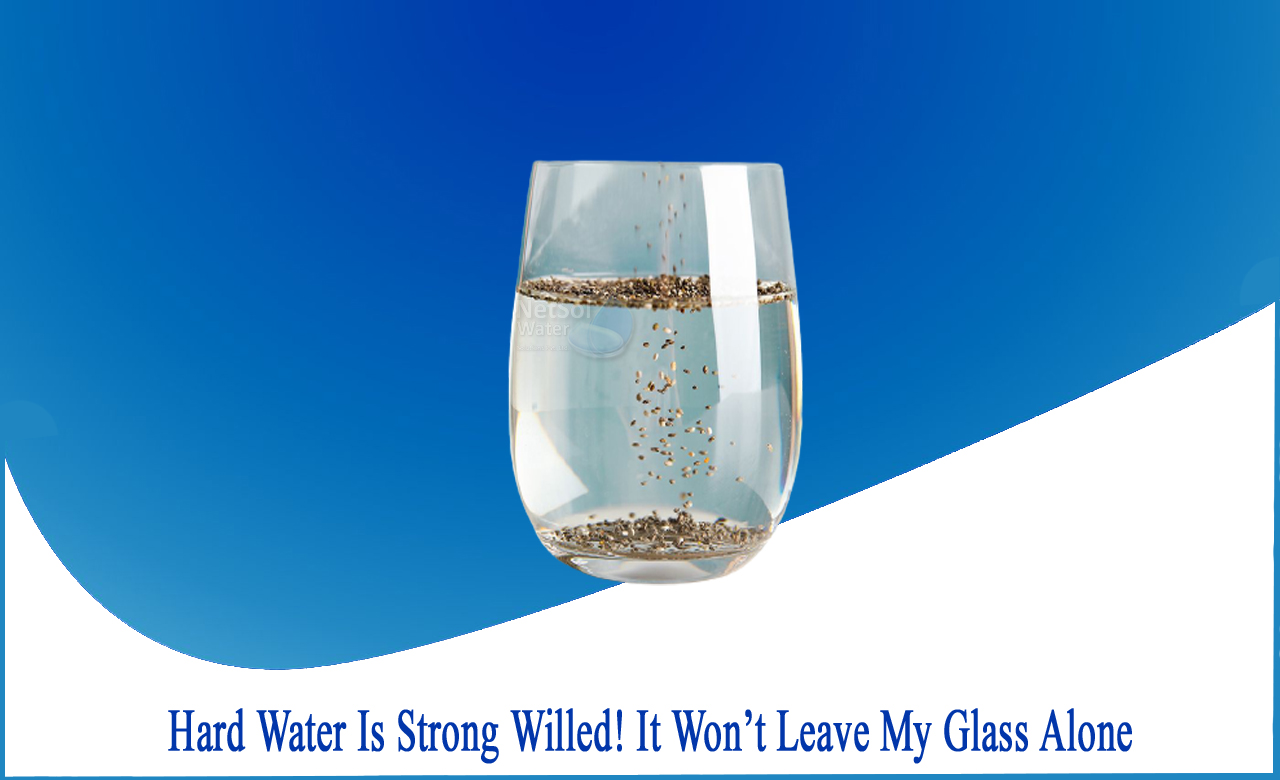Hard water is water that contains a high concentration of dissolved minerals. It contains these minerals because water picks up minerals like chalk, lime, calcium, and magnesium as it travels through the ground and into our water systems. Hard water's high mineral content, specifically high concentrations of calcium and magnesium, is to blame for these experiences. These minerals harden onto items as mineral deposits, also known as "scale," as water evaporates. The larger the scale, the more problems there are.
Although hard water is not a health hazard and is generally safe to drink, prolonged exposure to hard water can wreak havoc on both your appliances and your skin, especially if you have eczema.
What Causes Hard Water Stains On Glasses?
If you've ever had new glasses fitted, you'll know that the shiny and new appearance does not last as long as you'd hoped, even if you use bathroom cleaning products and wipe the shower units down on a regular basis.
The problem is that hard water stains on glasses are among the most difficult to remove because the problem is caused by more than just hard water stains.
It's soap scum, a combination of hard water and oils. Calcium and magnesium in your water combine with the fatty acids in your soaps and shampoos in a shower setting, and when that dries, it forms that crusty layer of film that we all know is difficult to remove.
What Are The Consequences Of Using Hard Water?
The main issue with hard water is that it causes limescale, which costs homeowners a lot of money in terms of maintenance and replacement. Here are some of the issues that hard water can cause:
Appliances – limescale accumulates in appliances such as washing machines, reducing their effectiveness as well as their lifespan because it forces the appliances to work harder than they should.
Slow flushing toilets – as impurities accumulate inside the drainpipes, they narrow, reducing water flow and leading to clogs.
Dirty dishes – hard water is the source of that scummy, cloudy layer that accumulates on your dishes and glassware.
Hair – hard water can leave mineral deposits in your hair, reducing its natural shine and leaving buildup on your scalp, causing your hair to look dull and dirty.
Skin–Because hard water prevents soap from dissolving, it can also leave a film on your skin, causing itching and aggravating skin conditions such as eczema and psoriasis.
GETTING RID OF WATER MARKS ON LARGE GLASSES
Step 1:
Prepare a 50/50 mixture of water and vinegar. Fill a plastic spray bottle halfway with the mixture.
Step 2:
Apply this mixture to the areas that have water spots. Rub the mixture with a towel to break down the mineral deposits of water spots for easy removal.
Step 3:
Using a sponge, thoroughly rinse the glass and remove any excess water. After that, use a clean cloth to buff the area dry.
Step 4:
If there are any stubborn water marks, use an old toothbrush to loosen the mineral deposits. Brush the affected area vigorously until the water spots are gone.
More hints and tipshave been tried and tested to remove water deposits from glass and mirrors. These cleaning agents aid in breaking down the mineral content of water marks, allowing them to be removed, leaving you with sparkling clean windows and mirrors.
BUT ALL THIS ON REGULAR BASIS IS HARD! AIN’T IT?
It is recommended to install Water Softener from Netsol as it will solve these issues on regular basis with little maintenance and with high services.
Netsol Water is Greater Noida-based leading water & wastewater treatment plant manufacturer. We are industry's most demanding company based on client review and work quality. We are known as best commercial RO plant manufacturers, industrial RO plant manufacturer, sewage treatment plant manufacturer, and effluent treatment plant manufacturers. Apart from this 24x7 customer support is our USP. Call on +91-9650608473, or write us at enquiry@netsolwater.com for any support, inquiry or product-purchase related query.



